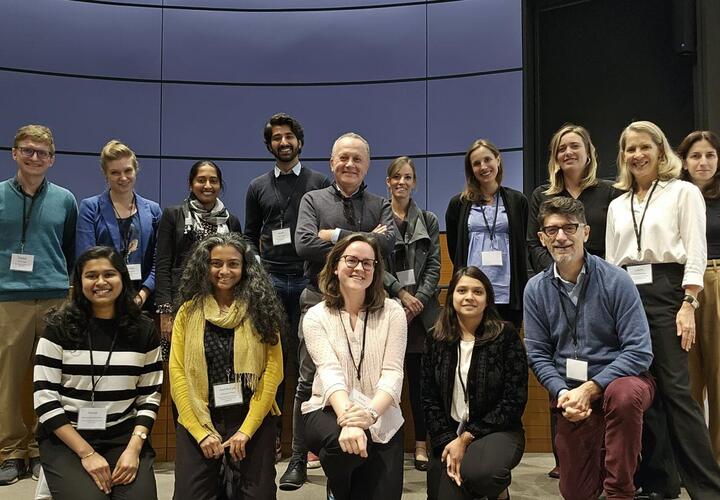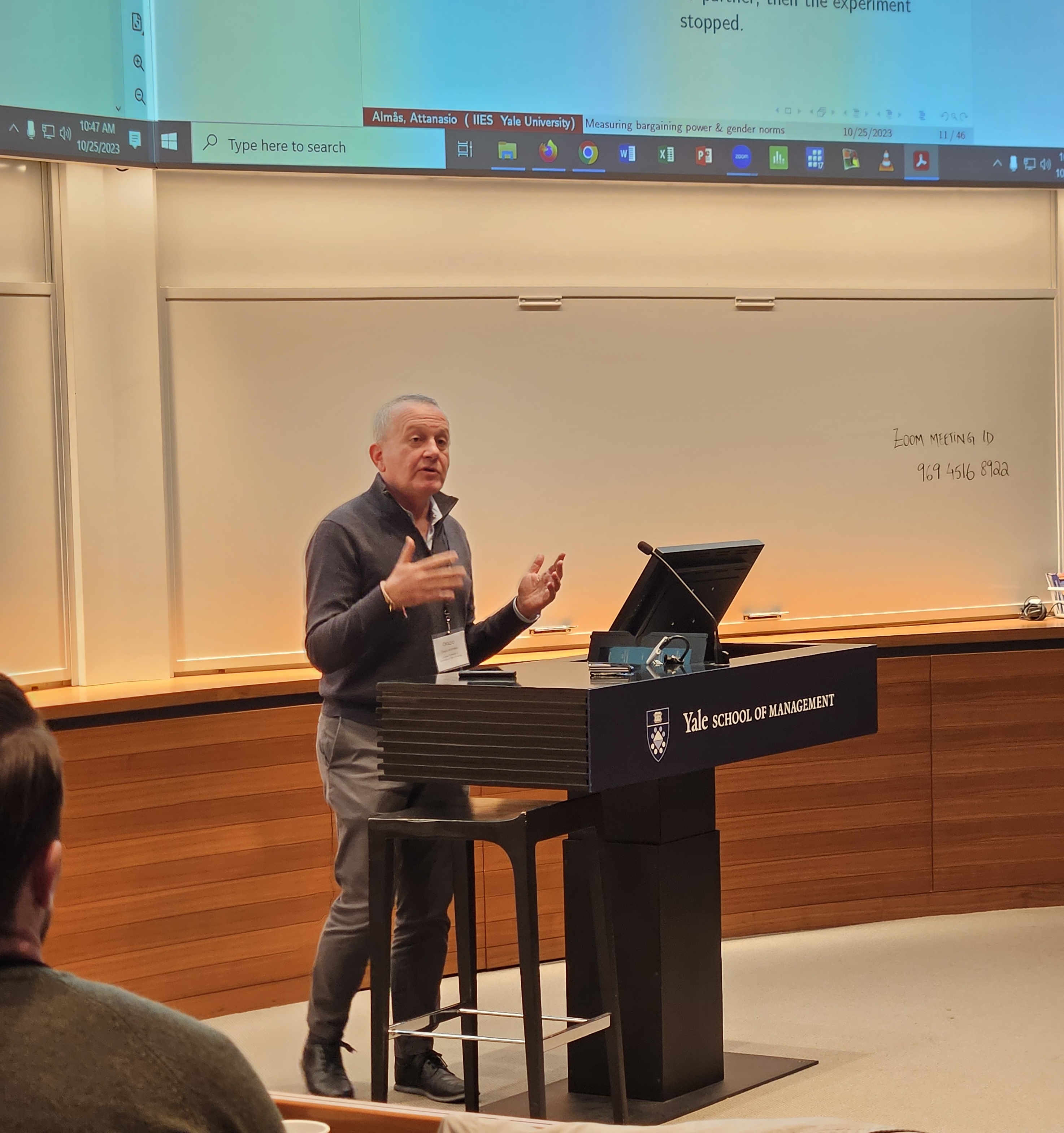Reflecting on the “Gender Norms and Women’s Economic Empowerment” Workshop
On October 25, 2023, researchers from the World Bank and the Yale Economic Growth Center gathered to discuss the measurement of beliefs and gendered social norms, especially those related to women’s economic empowerment, and understanding how these norms shift.

Reflecting on the “Gender Norms and Women’s Economic Empowerment” workshop
Social norms – the informal rules that guide individual decisions by setting expectations of common and appropriate behavior – operate across a range of domains. There is ample evidence of the impact of these norms on gender outcomes, from gender-based violence and sexual and reproductive health, to representation in political bodies and economic participation. How can we better collect data to understand which norms restrict women’s economic choices and engagement, through what mechanisms they operate, and what types of norms-aware policies can most effectively empower women?
On October 25, 2023, the Yale Economic Growth Center (EGC), Inclusion Economics at Yale University, and World Bank Group co-hosted a workshop that brought together a small group of researchers and practitioners from each institution to discuss the measurement of gendered beliefs and social norms, and how policy can better consider, target, or subvert norms. Thematically, this workshop marked a continuation of discussions that began at a previous EGC workshop in Bangalore, India, under the Gender and Growth Gaps research project.
The workshop focused on two main topics, which we describe below.
Topic 1: How do we measure norms? Theory, examples, and insights
The first part of the workshop focused on measuring social norms.
Yale Professor Orazio Attanasio began the session by discussing the decision-making power of couples within a household – a factor plausibly influenced by gender norms. Attanasio and his co-authors conducted an incentivized experiment in North Macedonia featuring a sequential willingness-to-pay exercise geared towards measuring resource control. This measure is one example of many provided throughout the day that attempt to link theory on norms with innovative measurement methodologies.

Orazio Attanasio answers an audience question from Rohini Pande.
The World Bank Group’s Tasmia Rahman, Rachael Pierotti, Alethia Donald, Maurizio Bussolo, and Nele Warrinnier continued the session. Speakers explored interesting divergences between measures of perceptions around women’s employment and actual employment patterns in the Middle East and North Africa. The Africa Gender Innovation Lab’s research placed an emphasis on how norm internalization and cultural context affects programs, while the MAGNETteam deploys innovative tools to uncover how persuasion, bargaining power and agency might influence intra-household decision-making. Research in Nepal focused on understanding whom individuals interpret as the ‘reference group’ – the persons whose perceptions one takes into account when making decisions.
Yale’s Charity Troyer Moore and Maria Kogelnik then discussed norms and belief elicitation in rural villages across Madhya Pradesh and Chhattisgarh, India. Troyer Moorer, for instance, revealed noticeable discordance within the household, with beliefs of husbands playing a central role in their wives’ labor market participation – even when controlling for labor demand in an experiment that offered women verifiable work opportunities. This research points towards the need to better understand linkages between perceived social sanctions and intra-household dynamics, which can be norm-specific.
Topic 2: How do norms change?
The second part of the workshop centered on how social norms can be changed.
Ana Maria Munoz Boudet, Sandor Karacsony and Yetunde Fatogun spoke about how different World Bank programs have targeted social norms directly or indirectly and operated at different stages of norm change. They discussed the challenges and opportunities in designing interventions centered on women’s economic empowerment in Pacific Island nations, as well as how such work will be situated in the context of the World Bank Gender Strategy 2024-2030. Though change in norms is complex and non-linear, programs such as the Nigeria For Women Project, taking a multi-faceted approach may lead to significant progress in Nigeria and beyond.
Summary
This workshop provided an opportunity to discuss prior work on gendered social norms and women’s economic empowerment, along with avenues for furthering the research and policy agendas. The organizers are grateful for the fruitful exchange and look forward to future collaborative efforts.
For information on future events, please refer to the EGC events page here.